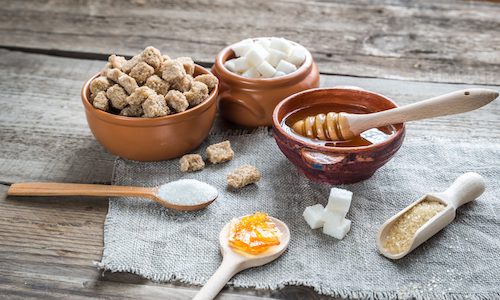
Sugar is an inseparable part of our diets, but with so many options available, choosing the right type can be a challenge. From white sugar to honey, each type differs in flavor, processing, and health impacts. Let’s explore the origins, uses, and nutritional profiles of common sugar types and determine which might be the best choice.
Common Types of Sugar Products and Their Characteristics
1. White Sugar (Table Sugar)
- Source: Sugarcane or sugar beets.
- Process: Highly refined, removing most moisture, minerals, and compounds, leaving pure sucrose.
- Uses: Ideal for cooking, baking, and beverages due to its neutral flavor.
- Health Notes: High-calorie and lacks additional nutrients.
2. Raw Sugar
- Source: Sugarcane.
- Process: Less refined than white sugar, retaining more natural minerals and compounds.
- Uses: Often used in coffee and desserts for its deeper flavor.
- Health Notes: Contains slightly more nutrients than white sugar but has a similar calorie count.
3. Brown Sugar
- Source: Sugarcane.
- Process: White sugar mixed with molasses for a richer flavor and darker color.
- Uses: Common in baking for its distinct flavor and moisture content.
- Health Notes: Minimal added nutrients from molasses; caloric content is similar to white sugar.
4. Honey
- Source: Flower nectar collected and processed by bees.
- Process: Naturally occurring and minimally processed.
- Uses: Perfect for sweetening tea, yogurt, or baked goods.
- Health Notes: Contains antioxidants, antibacterial compounds, and a lower glycemic index (GI) than white sugar.
5. Syrups (Agave Syrup, Corn Syrup)
- Source: Derived from plants like agave or corn.
- Process: Concentrated through processing; high-fructose corn syrup undergoes additional refinement.
- Uses: Often found in packaged foods and beverages.
- Health Notes: Agave syrup has a lower GI, making it better for blood sugar management, while corn syrup has a high GI and can spike blood sugar levels.
Which Sugar is Best for Your Health?
1. Sweetness and Sugar ContentSugars high in fructose, like honey and agave syrup, are naturally sweeter than glucose or sucrose. This allows for reduced usage while achieving the same sweetness level, lowering overall intake of sugar .
2. Antioxidant Properties
Less processed sugars, such as raw sugar, molasses, and date sugar, retain small amounts of antioxidants and minerals. While they are beneficial to health, these levels are minimal compared to antioxidant rich foods like berries.
3. Glycemic Index (GI)
- High GI (Spikes Blood Sugar): Corn syrup, glucose.
- Moderate GI: White sugar (sucrose).
- Low GI: Honey, agave syrup, which release energy more slowly.
4. Additional Benefits
- Honey: Antibacterial properties and natural enzymes.
- Molasses: Contains trace minerals like iron, calcium, and magnesium.
- Raw Sugar and Date Sugar: Slightly higher nutrient retention due to minimal processing.
Conclusion: Choosing the Right Sugar
When selecting a sugar, consider your health goals:- For natural sweetness with added benefits, honey or raw sugar are great options.
- To manage blood sugar levels, agave syrup offers a low GI alternative.
- For minimal processing and added minerals, molasses or date sugar are more natural.

However, regardless of the type, sugars should be consumed in moderation. Reducing overall sugar intake and focusing on whole, natural foods is essential for long term health.


